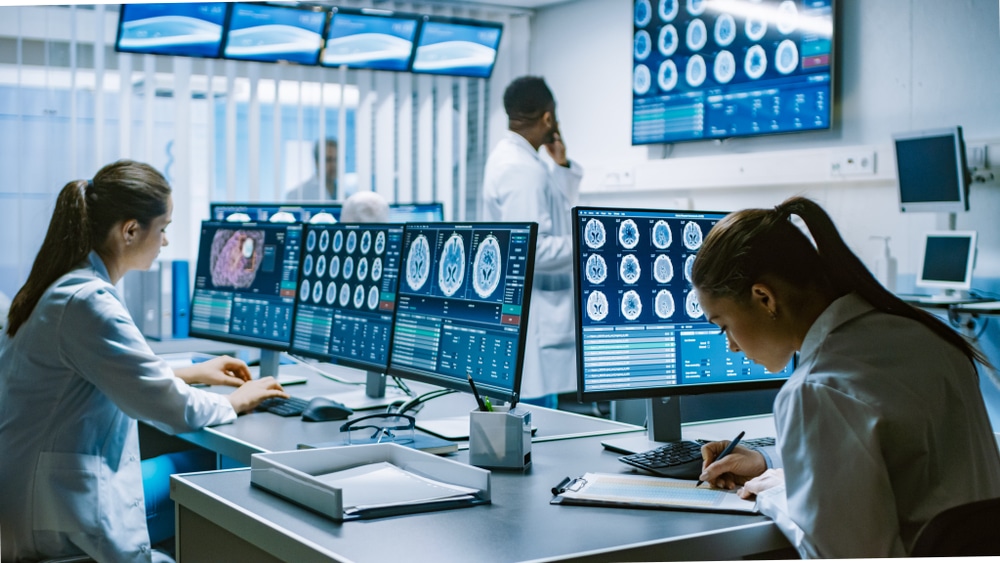The Neuroscience School at Georgia State University (GSU)
Are you fascinated by the human brain and its mysteries? The Neuroscience School at Georgia State University (GSU) offers a fascinating journey into the field of brain science, providing pathways to both knowledge acquisition and diverse career opportunities. In this blog, we will discuss everything you need to know about this dynamic program. From what the school offers to how you can become a part of it, we’ve got you covered! If you’re a high school student thinking about your future or someone with a growing interest in neuroscience, this is your starting point to understand what GSU’s Neuroscience School can offer you.
What is The Neuroscience School at Georgia State University (GSU)?
The Neuroscience School at Georgia State University (GSU) is an innovative summer program created in partnership with The Center for Behavioral Neuroscience. This program is designed specifically for high school students with a keen interest in science, particularly in the fascinating field of neuroscience. This program stands out from typical summer courses, offering a distinctive chance to delve extensively into the fascinating realm of brain science.
In this program, students are taught by a team of award-winning professors specializing in neuroscience and psychology. These educators are leaders in their field with a deep commitment to science education and research. Their expertise brings the subject to life, making complex concepts accessible and exciting.
In many high schools, neuroscience is touched upon briefly in biology or psychology classes, often leaving students curious for more. The Neuroscience School at GSU is the perfect place for these students to expand their understanding. It’s an environment where imagination and curiosity about the brain are encouraged and nurtured.
The program offers a comprehensive exploration of the nervous system’s structure and function, providing insights into what college-level neuroscience entails. For students wondering about core competencies in neuroscience, this program serves as an ideal introduction and aligns with the Society for Neuroscience’s Core Competencies in Neuroscience Training at Every Stage.
The Neuroscience School is also a place to connect with like-minded peers, sharing interests and ideas. It’s a space where students can spend their summer engaging in meaningful discussions and building relationships with others who share their passion for neuroscience.
Finally, this program is an opportunity to see the world and oneself from a new perspective. Neuroscience goes beyond being merely a scientific discipline; it serves as a key to comprehending human behavior and the intricacies of thought processes. By joining the Neuroscience School at GSU, students embark on a journey to discover the intricate workings of the brain and how it shapes our interaction with the world.
The Center for Behavioral Neuroscience (CBN)
The Center for Behavioral Neuroscience (CBN) at Georgia State University, established in 1998 and recognized by the National Science Foundation, is a leading interdisciplinary research consortium. Celebrating over two decades of operation, the CBN focuses on innovative research in brain mechanisms influencing social behavior and the education of new research scientists.
Its researchers have made notable advancements in areas such as autism, PTSD, obesity, and environmental healthcare solutions. The CBN is also dedicated to public education and outreach, offering various programs and events to disseminate neuroscience knowledge. Originally focused on the neuroscience of social behaviors, the Center’s research scope has expanded to include memory, cognition, and brain reward functions, adapting to the changing needs of neuroscience and its member institutions.
Why Should You Join The Neuroscience School at Georgia State University (GSU)?
Enrolling in the Neuroscience School at Georgia State University (GSU) is a big move for those aiming to become neuroscientists. You’ll become a member of an energetic and collaborative community where innovative research is directly linked to practical, real-world uses.
The program provides you with a robust base in science and also enhances essential skills like critical thinking and problem-solving. These skills are vital in a range of areas, including medical fields and technological industries.
A. Core Competencies for Neuroscience Undergraduates
The Society for Neuroscience’s (SfN) Neuroscience Training Committee has outlined essential Core Competencies for Undergraduate Neuroscience Training. These are designed to:
1. Help faculty and programs develop and assess their neuroscience training for undergraduates.
2. Enable undergraduate students to evaluate the skills they’ve gained, monitor their progress, and understand what’s required for future neuroscience training.
Conceptual Knowledge: A fundamental understanding of how the nervous system develops, its structure, and its functions.
- Basic knowledge of the nervous system’s cellular and molecular biology.
- An introduction to systems and behavioral approaches in neuroscience.
- Comprehensive and integrated learning in various fields related to neuroscience.
Analytic and Scientific Thinking: Skills in collecting, analyzing, and interpreting numerical data.
- Proficiency in scientific methods, including forming hypotheses, designing experiments, and analyzing and interpreting data.
- The ability to read and critically assess scientific research papers.
Rigorous and Responsible Research Conduct: A basic grasp of scientifically sound experimental design, execution, data analysis, and interpretation. Understanding research ethics, covering areas like:
- Research misconduct and integrity, including issues of data falsification or manipulation.
- Regulations concerning human and animal subjects in research and safe laboratory practices.
- Ethical practices in authorship, peer review, and publication.
Communication Skills: The capability to effectively present scientific information orally in a structured and clear manner.
- Skills in writing scientific information for publications.
- The ability to explain scientific concepts to non-experts, both orally and in writing.
- Active listening and asking relevant questions.
- Skills in visual data representation and figure preparation.
Individual Development and Professionalism: Practicing responsible and ethical behavior.
- Teamwork abilities and professional interpersonal skills.
- Exposure to the diverse cultural aspects within the neuroscience community.
- Engagement in advocacy and community outreach.
- Awareness of various career paths in neuroscience and how to pursue them.
B. Course Descriptions at The Neuroscience School, GSU
Neuroscience Boot Camp
This introductory course immerses students in foundational neuroscience topics like neuron function, brain structure, learning processes, and more. Expect a mix of lectures, discussions, and hands-on science, with some homework involved. Georgia State University’s own faculty, along with post-docs and student assistants, will teach the courses. This is an excellent chance to learn from experts and connect with students who share your interests.
Extras: Participants receive a textbook, neuroscience-themed keepsakes, and a course certificate.
Advanced Topics in Neuroscience: Neurological Disorders
This course delves into neurological disorders affecting the brain, spinal cord, and nerves. You’ll study various disorders like addiction, depression, Parkinson’s, and Alzheimer’s. The course covers symptoms, prevalence, causes, treatments, and research methods using case studies and research reports. It’s ideal for students who want to deepen their knowledge and meet experts in clinical neuroscience.
Extras: Participants receive a textbook, neuroscience-themed keepsakes, and a course certificate.
Neuroscience Lab Experience: Modeling Alzheimer’s in Drosophila
This hands-on lab course, available only in person, involves a week-long experience in a working lab, focusing on Alzheimer’s research using fruit flies.
Extras: Participants receive a textbook, neuroscience-themed keepsakes, and a course certificate.
Human Brain Imaging: Methods and Applications – Four-Day Course (New)
Ever wondered what a working human brain looks like? This course covers human brain anatomy, brain imaging technology, and applications in reading and reading disorders, including a tour of a brain imaging center. It also explores the role of AI in analyzing brain imaging data.
How Does Participating in The Neuroscience School at Georgia State University (GSU) Enhance Your College Application?
The Neuroscience School at Georgia State University (GSU) can significantly enhance your college admissions experience in several ways:
Academic Preparation and Knowledge
The Neuroscience School at GSU offers an in-depth study of neuroscience topics, which are often not covered extensively in high school. By learning complex concepts and engaging in advanced discussions, you’ll be better prepared for college-level science courses.
This program can help bridge the gap between high school and college academics, ensuring a smoother transition. Furthermore, having this background knowledge demonstrates to college admissions that you’re ready for challenging coursework and have a proactive approach to your education.
Demonstrated Interest in a Field
Colleges appreciate students who show clear interest and dedication to a specific field. By participating in GSU’s Neuroscience School, you’re not just saying you’re interested in neuroscience; you’re actively pursuing this interest.
This kind of initiative shows college admissions officers that you’re likely to be engaged and passionate about your studies, which is exactly the kind of student colleges seek. This demonstrated interest also helps in making your application stand out in a pool of candidates who might have similar grades and test scores.
Skills Development: The program doesn’t just teach you about neuroscience; it also helps you develop essential academic skills. For instance, you’ll learn how to approach complex problems, analyze data, and think critically about scientific questions. These skills are universally valued across academic disciplines. Moreover, they are not only beneficial for your academic growth but also prepare you for real-world challenges, making you a well-rounded candidate for college admission.
Enhanced Personal Statement
The unique experiences and challenges you encounter at the Neuroscience School can serve as compelling topics for your college essays. Discussing specific projects or breakthrough moments can showcase your growth and curiosity. Your essays become more personal and reflective of your journey, helping admissions officers see your potential as a student. This personal touch can make your application memorable and highlight your suitability for a college environment that values independent thinking and initiative.
Letters of Recommendation
Faculty and mentors at GSU who have seen your work and engagement firsthand can provide insightful recommendations. These letters can attest to your scientific aptitude, work ethic, and ability to contribute positively to a college community. A recommendation from a professional in the field carries weight, as it is based on direct observation of your abilities and character. These endorsements add credibility to your application and can be influential in the decision-making process.
Networking Opportunities
The connections you make at the Neuroscience School can be invaluable. These can be peers who might end up at the same college as you or upperclassmen who can offer advice about college life and studies. This network can also provide support and opportunities for future academic collaborations or internships. Building a network early on helps you establish a community of like-minded individuals who can be resources throughout your academic and professional journey.
University Familiarity
If you’re considering GSU for your undergraduate studies, attending the Neuroscience School gives you a sneak peek into life at the university. You’ll get to experience the campus culture, meet professors, and see the facilities firsthand. This experience can help you decide if GSU is the right fit for you. Being familiar with the university environment can also ease the transition from high school to college, making you feel more confident and prepared when you start your undergraduate journey.
The Neuroscience School at GSU provides a comprehensive experience that enriches your academic profile, enhances your college application, and prepares you for a successful transition to higher education.
How Do You Get Into The Neuroscience School at Georgia State University (GSU)?
Gaining admission to this prestigious program requires a blend of academic excellence and a passion for neuroscience. Prospective students should have a strong background in sciences and mathematics, demonstrated through their coursework and standardized test scores. Showcasing your interest in neuroscience through extracurricular activities or research experiences can enhance your application as well.
For students interested in registering for the Neuroscience School at Georgia State University, here’s what you need to know: Online courses are open to high school students who have completed any grade from 9th to 12th before the classes start.
As for the in-person classes, they are available to students who have finished 9th, 10th, 11th, or 12th grade and are at least 16 years old by the time the class starts. This age requirement is crucial and non-negotiable due to the safety protocols in place within the laboratory environments that participants will be part of.
How Do I Apply to The Neuroscience School at Georgia State University (GSU)?
If you’re interested in joining the Neuroscience School at Georgia State University (GSU), the registration process is straightforward and tailored to different educational levels. For those aiming to enroll in the undergraduate program, particularly high school seniors or individuals who have recently graduated from high school, the application process involves using the Common Application, a widely-used college application platform. This platform simplifies the application process by allowing you to apply to multiple universities, including Georgia State, with one comprehensive application.
When you apply, you’ll need to provide your academic records, personal information, and probably write an essay or personal statement. This statement is your chance to express your interest in neuroscience and why you want to study at GSU for the summer. You might need to submit letters of recommendation, so it’s a good idea to start preparing your application well in advance.
Georgia State University might also have specific requirements or additional steps for their neuroscience program, so it’s important to carefully review its guidelines. They may have criteria like minimum GPA, prerequisite courses, or extracurricular activities related to science. Make sure to check the university’s website or contact their admissions office for the most up-to-date information and detailed instructions on the application process.
How Hard is Getting Into The Neuroscience School at Georgia State University (GSU)?
Gaining admission to The Neuroscience School at Georgia State University (GSU) is largely dependent on the availability of spots in each course. Registration for these courses stays open until they reach their maximum capacity.
This means that as long as there are open seats in a course, you have the opportunity to enroll. The key is to apply as early as possible, as spaces can fill up quickly due to the high interest in these programs. So, while the process itself isn’t overly difficult, securing a spot can be competitive due to the limited number of places available.
A. Course Fees (Summer 2023 Rates)
Neuroscience Boot Camp:
- In-Person Course: Priced at $550. Participants need to be at least 16 years old by the start of the course.
- Online Course: Also $550. Available to students who have completed at least the 9th grade before the course begins.
Advanced Topics in Neuroscience: Neurological Disorders:
- In-Person Course: The fee is $550, with a requirement that students must be 16 years old by the start of the course.
- Online Course: This is priced at $550 and is open to students who have finished 9th grade or higher.
Online Human Brain Imaging: Methods and Applications (New):
- This new 4-day course is offered at an introductory rate of $360.
Neuroscience Lab Experience: Modeling Alzheimer’s in Drosophila:
- This in-person course costs $550. Participants need to be 16 years old by the course start date.
A La Carte Days:
- These are special topic-focused days priced at $75 per day. They are exclusively available to students who have previously attended courses at the Neuroscience School.
When is the Deadline to Apply to The Neuroscience School at Georgia State University (GSU)?
The application deadlines for the Neuroscience School at GSU vary depending on whether you’re applying for early decision, regular decision, or as a transfer student. It’s crucial to check the university’s official website for the most up-to-date deadlines to ensure your application is timely.
When Do I Find Out About My Application to The Neuroscience School at Georgia State University (GSU)?
After submitting your application, you can expect to hear back from GSU within a few weeks to a few months, depending on the admission cycle. The university communicates decisions through its online portal, so keep an eye on your account for updates.
Where is The Neuroscience School at Georgia State University (GSU) Held?
The Neuroscience School is located on the bustling campus of Georgia State University in Atlanta. This urban setting provides a dynamic environment for learning, with access to state-of-the-art facilities and resources that enhance your educational experience.
For the shorter online courses, you have the convenient opportunity to engage in learning right from the comfort of your own home!
Maximizing Your Experience at The Neuroscience School at Georgia State University (GSU) through Mentorship
Attending The Neuroscience School at Georgia State University (GSU) is a transformative experience, and one of the most enriching aspects of this program is the opportunity for mentorship. Engaging with mentors can significantly enhance your learning and personal development during your time at the school.
Building a Strong Foundation in Neuroscience
Mentors at GSU are often seasoned professionals and academics in the field of neuroscience. They bring a wealth of knowledge and firsthand experience that textbooks alone cannot offer. By interacting with these experts, you gain insights into complex neurological concepts, research methodologies, and the latest advancements in the field. This deeper understanding lays a strong foundation for your future studies and career in neuroscience.
Personalized Guidance and Support
Mentorship provides personalized guidance that is tailored to your interests and goals. Whether you’re struggling with a particular topic, seeking advice on research projects, or exploring career options in neuroscience, mentors can offer valuable advice and support. This one-on-one interaction ensures that your educational journey is aligned with your aspirations and helps you navigate challenges more effectively.
Networking and Professional Opportunities
Mentors can introduce you to professional networks and opportunities within the neuroscience community. This could include invitations to conferences, workshops, or even research projects. Such exposure is invaluable, as it not only enhances your learning but also opens doors to future career opportunities. Networking with professionals in the field can lead to internships, job offers, or collaborations in your future academic or professional life.
Developing Essential Skills
Apart from academic knowledge, mentors at The Neuroscience School also focus on developing essential skills such as critical thinking, problem-solving, and effective communication. These skills are crucial in any scientific field and will benefit you throughout your academic and professional career. Mentors can provide feedback on your approach to problem-solving, guide you in presenting your ideas clearly, and help you build confidence in your abilities.
Nurturing Research Interests
For students interested in research, mentorship can be particularly beneficial. Mentors can guide you in developing research ideas, designing experiments, and understanding the nuances of conducting scientific research. This hands-on experience is invaluable for students considering a career in research or planning to pursue further studies in neuroscience or related fields.
Emotional and Motivational Support
Lastly, mentors at GSU can provide emotional and motivational support. Pursuing a rigorous program like neuroscience can be challenging, and having a mentor who understands the journey can be reassuring. They can offer encouragement, share their experiences, and help you stay motivated through the ups and downs of your academic journey.
Mentorship is a key component of maximizing your experience at The Neuroscience School at GSU. It enriches your learning, provides personalized guidance, opens up professional opportunities, develops essential skills, nurtures your research interests, and offers emotional support, all of which are instrumental in shaping a successful and fulfilling journey in the world of neuroscience.
Building a Strong Network at The Neuroscience School at Georgia State University (GSU): Strategies and Benefits
Networking at The Neuroscience School at GSU is about building relationships that enrich your academic journey and support your future career. This could also be applied to any summer programs you might be interested in joining, so better take notes!
1. Strategies for Effective Networking
Engage Actively in Class and Group Projects
Interacting with your peers in class isn’t just about learning together; it’s an opportunity to discover common interests and strengths. By actively participating, you’re not just a face in the crowd; you become a known and respected member of your class. Group projects can also lead to discovering potential research partners or friends who share similar career goals.
Participate in Workshops and Seminars
These events are more than just educational sessions; they’re networking goldmines. Here, you can meet professionals who can offer real-world advice or insights into the neuroscience field. Don’t be shy about asking questions or introducing yourself; these small interactions can lead to meaningful connections.
Being part of these groups allows you to meet students from other years and programs, as well as professionals who have already established themselves in the field. These connections can provide guidance, mentorship, and even job leads. Moreover, attending meetings and events of these organizations can give you a broader perspective of the field.
Leverage Social Media and Professional Platforms
Using these platforms effectively can help you connect with neuroscience professionals globally. You can follow their work, engage in discussions, and maybe even set up informational interviews. This digital network can be especially helpful if you’re considering working or studying in different parts of the world.
Seek Mentorship and Guidance
A mentor can be a guide, a sounding board, and a gateway to new opportunities. They can introduce you to their professional contacts, recommend you for opportunities, and provide advice based on their experiences. This relationship can be one of the most influential aspects of your time at GSU.
2. Benefits of a Strong Network
Career Opportunities
Networking might lead you to your first job or a coveted internship. Sometimes, it’s about being in the right place at the right time with the right people. Your contacts can recommend you for positions or refer you to opportunities that aren’t widely advertised.
Academic Support and Collaboration
Having a network means you’re never alone in your academic challenges. You can form study groups, collaborate on research papers, and support each other during exams. These academic collaborations can sometimes lead to co-authoring papers or presenting at conferences.
Professional Development
Engaging with a diverse group of professionals and academics can give you insights into different career paths in neuroscience. You can learn about emerging research areas, industry demands, and skills that are currently in high demand.
Support System
Building a network means you’re not just collecting contacts; you’re building a community. This community can offer advice, encouragement, and a sympathetic ear when you face challenges. It’s about having people who understand your journey and can offer practical and emotional support.
Long-term Professional Relationships
The relationships you form at GSU can last throughout your career. These long-term connections can lead to ongoing collaborations, mentorship opportunities, and even lifelong friendships.
Enhancing Your Reputation
Being active and engaged in your academic community helps build your personal brand. It establishes you as someone who is serious about their career, proactive in their learning, and valuable to the community. This reputation can open doors and create opportunities that might otherwise be unavailable.
Building a network at The Neuroscience School at GSU involves active participation, engaging in a variety of activities, and making the most of digital platforms. The benefits of such networking are substantial, offering not just career and academic advantages but also personal growth and a supportive community, all contributing to a successful career in neuroscience.
When Does The Neuroscience School at Georgia State University (GSU) Take Place?
For those who attended the in-person classes during the Summer 2023 program at The Neuroscience School of Georgia State University, classes were scheduled from Monday to Friday, starting at 9:30 AM and ending at 3:30 PM Eastern Daylight Time, right on the GSU campus.
For students who chose online courses, these were also held Monday to Friday but with slightly different hours, running from 10:00 AM to 4:00 PM Eastern Daylight Time. This schedule provided flexibility for different learning preferences, whether the students prefer the immersive campus environment or the convenience of online study.
Keep an eye out for new information regarding the Summer 2024 schedule and other key dates – they will be updating them soon!
How Long is The Neuroscience School at Georgia State University (GSU)?
The Neuroscience School at Georgia State University (GSU) spans a period of 6 weeks. During this time, students are immersed in various aspects of neuroscience through different courses and hands-on experiences. This six-week duration is designed to provide a comprehensive understanding of the subject within a manageable timeframe, making it both thorough and intensive.
Ideal Class Schedule at The Neuroscience School, GSU
Here’s a look at what was offered for the Summer 2023 schedule at The Neuroscience School, GSU:
Week of June 12: In-Person Neuroscience Boot Camp. This immersive course takes place on campus.
Week of June 19: This is a new Online Course! Available Tuesday through Friday – “Human Brain Imaging: Methods and Applications.” It’s a four-day online learning experience.
Week of June 26: In-Person Advanced Topics in Neuroscience: Neurological Disorders. This is an on-campus, in-depth exploration of neurological disorders.
Week of July 10: Online Neuroscience Boot Camp: Engage in this interactive online course from the comfort of your home.
Week of July 17: Online Advanced Topics in Neuroscience: Neurological Disorders**. Dive into this complex topic through our online platform.
Week of July 24: In-Person Neuroscience Lab Experience: Modeling Alzheimer’s in Drosophila. This hands-on lab experience is offered exclusively on campus.
Schedule for In-Person Courses: These courses run from Monday to Friday, 9:30 AM – 3:30 PM Eastern Daylight Time, at Georgia State University. Due to laboratory safety rules, participants must be at least 16 years old by the start of the course.
Schedule for Online Courses: The online classes are scheduled from Monday to Friday, 10:00 AM – 4:00 PM Eastern Daylight Time, unless specified otherwise. Each day’s sessions include both live interactions with instructors and fellow students, as well as self-paced, asynchronous learning segments.
Preparing for College Studies after The Neuroscience School at Georgia State University (GSU): Guidance on Further Education and Degrees
Suppose you’re considering further education after participating in The Neuroscience School at Georgia State University (GSU). In that case, several undergraduate degree programs align well with the interests and skills developed in this pre-college program. Here’s a guide to help you explore potential paths for your college studies:
1. Neuroscience or Neurobiology
Program Focus: Both Neuroscience and Neurobiology programs offer an in-depth exploration of the brain, from its smallest components to its most complex behaviors. In these programs, you’ll uncover the inner workings of the brain. You’ll delve into the intricate ways in which brain cells communicate, understanding the biological basis of thoughts, emotions, and behaviors. These programs also shed light on how various diseases can impact the brain, providing crucial insights into the challenges faced by individuals with neurological conditions.
In Neuroscience, you’ll explore the broad spectrum of brain-related topics, from the cellular and molecular processes to the overarching influence on our daily lives. You’ll study how the brain shapes our experiences, emotions, and decision-making, making it a dynamic and multidisciplinary field.
Neurobiology, on the other hand, focuses specifically on the biological aspects of the brain, unraveling the mysteries of its structure, function, and the processes that underlie cognition and behavior.
Career Paths: Graduates of Neuroscience or Neurobiology programs find themselves well-prepared for a diverse range of career opportunities. Many choose to work in laboratories, conducting groundbreaking research to advance our understanding of the brain and contribute to the development of new treatments. Hospitals also welcome these graduates, where their expertise is invaluable in diagnosing and treating neurological conditions.
Some graduates take their knowledge to the pharmaceutical industry, where they play a pivotal role in developing medications and therapies for neurological disorders. Others follow the path to medical school, becoming physicians with a deep understanding of the brain’s complexities.
For those with a passion for research and a thirst for knowledge, pursuing Ph.D. programs allows them to delve even deeper into the world of neuroscience, becoming experts in their chosen fields.
Skills Developed: Throughout your journey in Neuroscience or Neurobiology, you’ll acquire a diverse set of skills that are highly valuable in the scientific community. Laboratory work becomes second nature as you gain proficiency in conducting experiments, handling intricate equipment, and analyzing data with precision.
Critical analysis of research data becomes a core skill, enabling you to draw meaningful conclusions and contribute to the advancement of scientific knowledge. Your understanding of biological processes, especially those related to the brain, becomes a foundation upon which you can build your career.
These skills not only make you an asset in research and medical fields but also equip you with the ability to make a profound impact on our understanding of the brain and its role in human health and behavior.
2. Psychology with a Focus on Biological Psychology or Cognitive Science
Program Focus: This specialized program brings together the fascinating world of psychology and the intricate science of the brain. It delves deep into understanding how the brain and behavior are interconnected.
With a focus on biological psychology or cognitive science, you’ll learn about the profound impact of brain injuries on human behavior, unravel the mysteries of learning and memory, and gain insights into the intricate processes that shape our perception of the world.
In the realm of biological psychology, you’ll delve into the physical and neurological aspects of behavior. This includes examining how the brain’s structure and function influence emotions, decision-making, and even mental disorders.
Cognitive science explores the mechanisms underlying human cognition, including attention, problem-solving, and language comprehension. You’ll analyze the ways in which our brains process information, make decisions, and create our unique cognitive experiences.
Career Paths: Graduates of this program find themselves well-equipped for a variety of fulfilling career paths. Many choose to become therapists, helping individuals navigate the complexities of their mental well-being.
With a deep understanding of human behavior and cognition, graduates make exceptional educators, guiding students in their pursuit of knowledge and personal growth. Researchers in this field contribute to expanding our knowledge of the brain-mind connection, shedding light on the intricacies of cognitive processes and psychological well-being.
Some graduates find their calling in mental health services, providing essential support to individuals facing psychological challenges. Others apply their expertise in the field of human resources, where a deep understanding of behavior and cognition is invaluable in fostering a positive work environment.
Whether you aspire to make a difference through therapy, education, research, or supporting mental health, this program equips you with the skills and knowledge to excel in your chosen path.
Skills Developed: Throughout the program, you’ll develop a comprehensive skill set essential for understanding and interpreting human behavior. You’ll learn to conduct psychological assessments, allowing you to assess and analyze individuals’ mental and emotional well-being. Additionally, you’ll gain insights into the profound ways in which biology influences psychology, providing a holistic understanding of the brain-behavior relationship.
Your ability to interpret and analyze human behavior will become a valuable asset in your chosen career path. Whether you’re helping individuals overcome psychological challenges, guiding students in their educational journey, or conducting groundbreaking research, your expertise in the intricate interplay between psychology and the brain will make a meaningful impact. This program opens doors to diverse and rewarding careers in the fields of psychology, mental health, education, and research.
3. Biomedical Sciences
Program Focus: Biomedical sciences serve as the bridge between biology and medicine, with a core emphasis on understanding diseases, developing treatments, and unraveling the intricacies of the human body.
In this program, you’ll discover the mysteries of health and illness, diving deep into the underlying biological processes that govern our well-being. From the cellular level to the entire human organism, biomedical sciences provide insights into the mechanisms of diseases, their prevention, and the development of cutting-edge therapies.
Career Paths: The realm of biomedical sciences offers a broad spectrum of career opportunities. Graduates can choose to become research scientists, delving into groundbreaking studies that advance our understanding of diseases and medical treatments. Some opt for roles in healthcare management, overseeing the efficient operation of healthcare facilities and ensuring the delivery of quality patient care.
Many biomedical science graduates also pursue the path of becoming physicians, leveraging their profound knowledge to diagnose, treat, and prevent diseases. Others find their calling in public health, working to protect and improve the health of communities.
Skills Developed: Throughout the program, you’ll acquire a diverse set of skills crucial for success in the biomedical field. Laboratory techniques become second nature as you gain proficiency in conducting experiments and analyzing biological samples.
You’ll become adept at deciphering complex scientific data, a skill essential for drawing meaningful conclusions from research findings. Understanding the intricacies of biological systems, from molecular interactions to organ functions, will be a core component of your training.
4. Molecular Biology or Genetics
Program Focus: Molecular biology and genetics delve into the fundamental building blocks of life: DNA and genes. In this program, you’ll explore the intricate world of genetic information, from the genes that determine traits like eye color to those that influence disease susceptibility.
It’s all about understanding how DNA shapes who we are and how our bodies function at the molecular level. You’ll dissect the secrets hidden within the double helix, uncovering the mysteries of inheritance, evolution, and the genetic basis of health and disease.
Career Paths: Graduates in molecular biology or genetics have a wide array of career opportunities. Many find themselves in laboratory settings, where they conduct experiments to uncover genetic insights.
Some become genetic counselors, guiding individuals and families through the complexities of genetic testing and hereditary conditions. Others venture into the field of forensic science, using DNA analysis to solve crimes and identify individuals. This field is also crucial in the world of biotechnology and pharmaceuticals, where genetic research drives the development of new therapies and treatments.
Skills Developed: Throughout the program, you’ll become a master of DNA analysis, capable of unraveling genetic codes and interpreting their significance. You’ll delve deep into the study of genetic disorders, gaining expertise in identifying, diagnosing, and understanding these conditions.
Precision and accuracy in laboratory settings are skills you’ll develop, ensuring that your experiments yield reliable results. Additionally, critical thinking and problem-solving are honed as you navigate the intricacies of genetics.
5. Biochemistry
Program Focus: Biochemistry is all about unraveling the mysteries of life at the molecular level. In this program, you’ll dive deep into the study of the molecules that make up living organisms. This includes exploring the structure and function of essential molecules like proteins, enzymes, and DNA.
By understanding these tiny building blocks, you’ll gain insights into how life processes work, from metabolism to genetic information transfer. Biochemistry forms the bridge between biology and chemistry, allowing us to explore the chemical reactions that keep living systems running smoothly.
Career Paths: Graduates with a degree in biochemistry have a plethora of career options. Many find themselves in the pharmaceutical industry, where they work on developing new drugs and therapies. Others pursue careers in research, whether in academia, government institutions, or private laboratories.
Some biochemists find their calling in product development, creating innovative solutions for various industries. Additionally, biochemistry skills are highly relevant in environmental science, where understanding chemical processes in ecosystems is vital for conservation efforts.
Skills Developed: A biochemistry program equips you with a strong foundation in understanding the chemical reactions that occur in living organisms. You’ll become proficient in laboratory techniques, which are essential for conducting experiments and analyzing biological molecules.
Scientific problem-solving is a key skill you’ll develop, allowing you to tackle complex questions and devise solutions. Your ability to work with precision and attention to detail in the lab will be honed, ensuring accurate research outcomes.
6. Computational Neuroscience
Program Focus: Computational neuroscience is an exciting interdisciplinary field that combines computer science with the study of the brain. In this program, you’ll explore how to build computer models that simulate brain processes.
These models help us understand how the brain works, from processing sensory information to making complex decisions. You’ll also dive into the world of big data by learning how to analyze and interpret massive datasets generated from brain research. The program focuses on deciphering how the brain computes information, which is crucial for solving many brain-related mysteries.
Career Paths: Graduates in computational neuroscience have diverse career opportunities. Many find themselves in research roles, where they use computational models to simulate brain functions and gain insights into neurological disorders. Some venture into the realm of artificial intelligence (AI) research, where they work on creating intelligent algorithms and machine learning systems.
Another exciting avenue is the development of brain-computer interfaces (BCIs) that allow direct communication between the brain and external devices. You might also find opportunities in data science, where your skills in data analysis are highly sought after.
Skills Developed: One of the critical outcomes of a computational neuroscience program is a strong foundation in computer programming. You’ll become proficient in languages like Python or MATLAB, which are essential tools for creating computational models and analyzing data.
Data analysis skills are also honed, allowing you to extract meaningful insights from complex datasets. Mathematical modeling is another crucial skill you’ll develop, enabling you to represent and simulate brain processes mathematically. These skills make you a valuable asset in fields that require expertise in both computer science and neuroscience.
7. Behavioral Neuroscience
Program Focus: Behavioral neuroscience is an intriguing field that delves into the intricate link between the brain and behavior. This program will take you through the exploration of how different parts of the brain influence emotions, decision-making, and social interactions.
You’ll study the physiological basis behind behaviors, how memory is formed and stored in the brain, and how neurological disorders can alter behavior. This program also often includes understanding the impact of brain injuries and the neurological foundations of mental health conditions.
Career Paths: Graduates with a degree in Behavioral Neuroscience have a wide array of career options. Many find roles in research settings, working in labs to conduct experiments and make new discoveries about the brain and behavior.
Others may apply their knowledge in clinical settings, working as therapists who help individuals with neurological conditions or as counselors in mental health services. There are opportunities in education where graduates can teach the next generation about the wonders of the brain or, in the corporate world, apply their understanding of human behavior to areas like marketing or human resources.
Skills Developed: In a Behavioral Neuroscience program, you will develop a solid set of skills that are highly valued in many fields. You’ll learn how to design and conduct experiments, often using sophisticated equipment and methodologies. This includes learning how to collect and analyze behavioral data, interpret findings, and present them clearly.
Critical thinking skills are honed as you evaluate existing research and theories. Importantly, you’ll also develop a deep understanding of the neurological underpinnings of behavior, which is essential for any career that involves working with people or researching the brain.
Each of these programs offers a unique perspective on the brain and its functions. When choosing a program, think about what aspect of your experience at The Neuroscience School you enjoyed the most and what career you might want to pursue. These programs offer a mix of practical experience and theoretical knowledge, setting a solid foundation for a career in science, healthcare, or research.
Final Thoughts
Starting your academic adventure at The Neuroscience School at Georgia State University goes beyond just education. This is a perfect opportunity for you to explore the human brain and make a meaningful impact in the field. With its combination of challenging studies, research chances, and a nurturing atmosphere, GSU is the ideal spot to transform your interest in the brain into a fulfilling career.
Looking for advice on getting into pre-college programs? Think about collaborating with experts in college admissions, such as AdmissionSight. With our extensive experience, we’ve guided many students to gain admission to prestigious universities worldwide. Begin your academic journey today by scheduling a consultation with us!


















































